From August 6–8, 2024, 28 union leaders attended the Data-Based Advocacy Workshop, part of the "Makin Terang" Program, in Bogor, West Java. This three-day workshop was held to enhance advocacy and negotiation strategies for trade unions by utilizing data. The event was attended by representatives of trade unions from 10 textile, garment, and footwear companies.
Day One
The event began with the session "Introduction to the Makin Terang Program" by Lydia Hamid from Gajimu. The Makin Terang Program aims to improve working conditions and promote member organizing based on labor data. Organized by the WageIndicator Foundation, TURC, and Mondiaal FNV, the Makin Terang program is currently working with four of the largest labor unions in the TGSL sector: TSK-SPSI, Garteks, SPN, and GSBI.
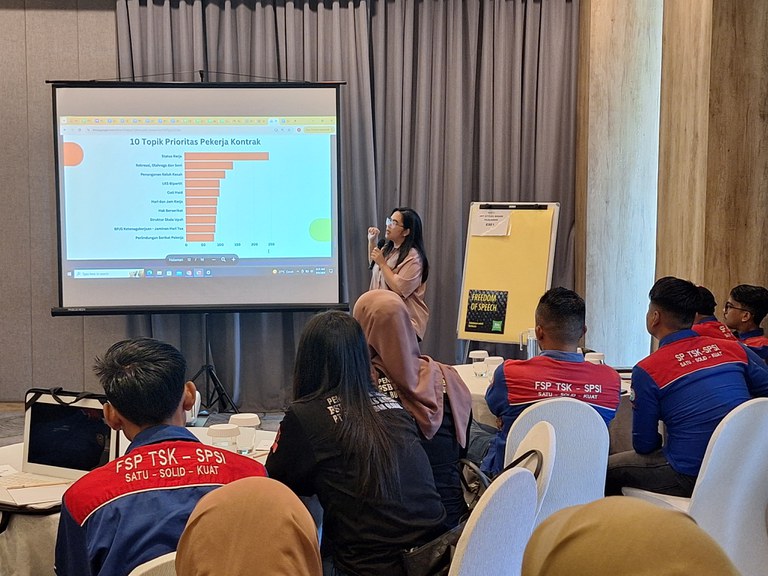
After the introduction and agreement on the training security policy, Rifki Zulfikar from TURC continued with the session "Root Cause Analysis of Labor Rights Violations in Companies." This analysis session used a chessboard method, containing cause-and-effect statements within three working groups. From this session, participants successfully mapped the root causes of the following three issues:
- The root cause of unpaid overtime wages is the number of workers unable to meet global market demands.
- The root cause of union-busting is the push for easier investment.
- The root cause of menstrual leave without a doctor's note is the company's advantage due to gender bias, assuming that women are easy to control.
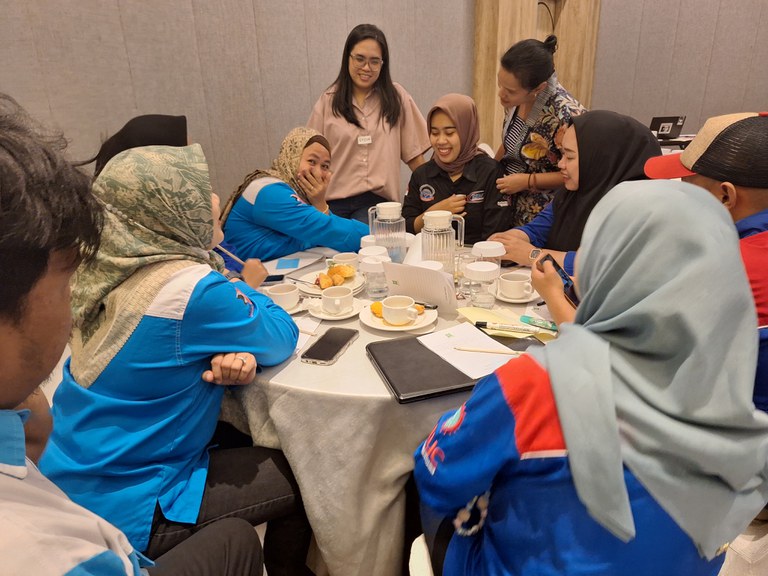
Next, Sugianto, Head of Research, Studies, and Organizational Development at SPN, led the session "True Labor Unions." Sugianto began with the history of labor unions in Indonesia, from the colonial period, the era of independence (1945–1965), and the new order (1966–1998). He explained each of the principles of true labor unions, namely:
- Solidarity
- Independence
- Democracy
- Transparency
- Social justice
- Advocacy and rights protection
- Education and capacity building
According to him, one of the main challenges labor unions face today is the low density or membership, which affects the union’s bargaining position in government policies.
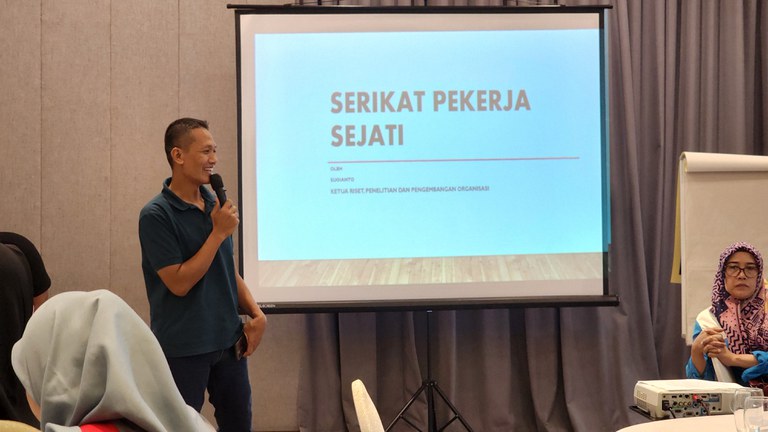
Then, Dela Feby from Gajimu facilitated the session "Basic Concepts of Gender," providing a foundational understanding of gender inequality, especially in the workplace. While sex is a biological attribute, gender is a social identity shaped by society through norms, culture, beliefs, and customs. Gender becomes an issue when discrimination occurs based on traits, scope, roles, attitudes, and functions. For instance, men are often seen as assertive, strong, and more suitable to be leaders, while women are perceived as gentle and submissive.
These assigned traits and roles result in men at the workplace being more likely to be appointed as leaders, both in companies and in unions. Consequently, opportunities are not distributed fairly or equally, leading to unequal outcomes. For example, male workers tend to have higher salaries and positions compared to female workers.
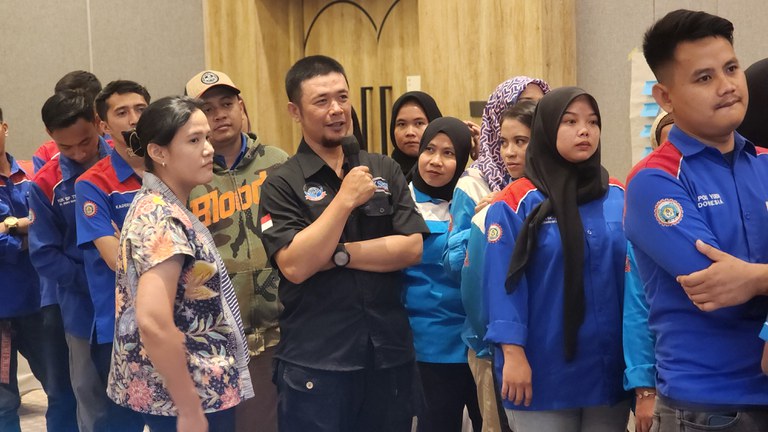
Building on the previous session, Uli Pangaribuan from LBH Apik Jakarta delivered a session on "Gender Inequality and Gender-Based Violence." She explained that there are various forms of gender inequality, including:
- Stereotyping or labeling
- Marginalization
- Subordination
- Discrimination
- Violence (physical, psychological, sexual, and economic)
- Double burden
- Patriarchy
According to her, the root causes of gender inequality stem from a culture that absolves perpetrators, impunity, power relations, and misogynistic traditions.
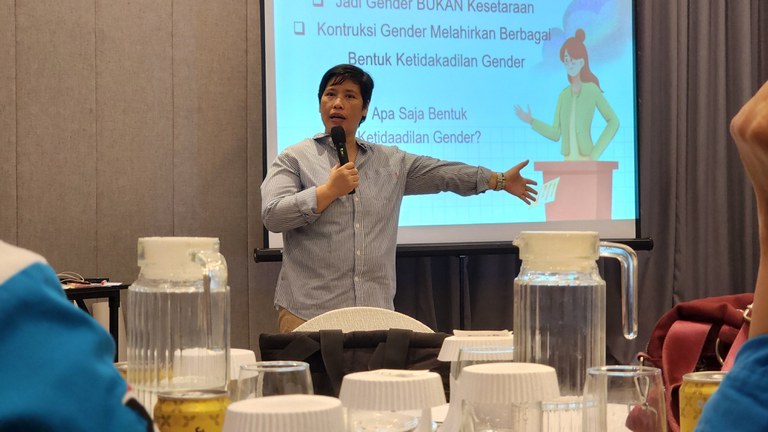
Day Two
After reviewing the material from the first day, participants entered the discussion on "Introduction to Advocacy & Use of Data," facilitated by Rifki Zulfikar. As a strategic action to influence those in power, advocacy follows a systematic process, beginning with problem identification, research, advocacy planning, determining actions, and evaluation. In all these stages, the use of data is crucial. One participant highlighted that advocacy is not only about resolving individual cases but also about long-term efforts to prevent the recurrence of similar issues.
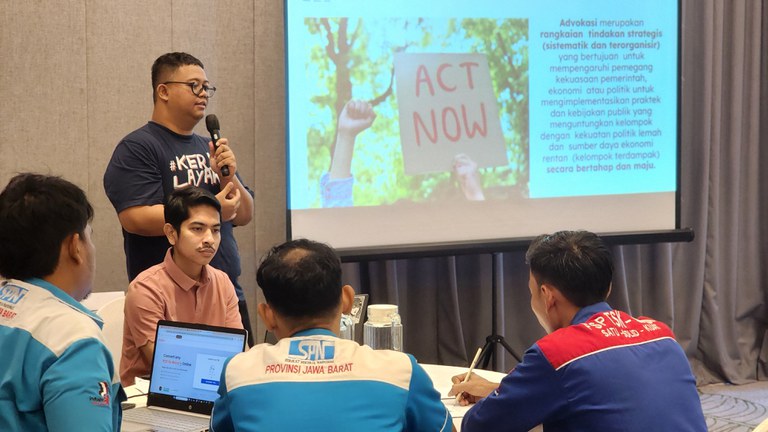
Next, Biko from TURC facilitated the session on "Data, Information, and Case Studies." This session covered the differences between data and information, as well as the distinction between qualitative and quantitative data. In this session, participants simulated data analysis for advocacy purposes. Divided into three groups, each group tackled a different topic. For instance, the group addressing union-busting identified the need for worker data, suspension records of union leaders, documentation from the labor office, and letters of appointment for union leaders. They also gathered data on production, overtime hours, and new worker recruitment to demonstrate that the dismissal of union leaders was not due to efficiency measures.
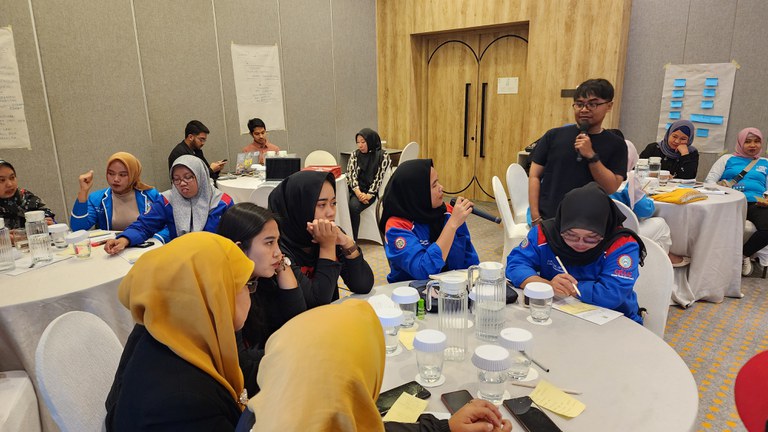
After understanding data in general, participants were introduced to data gathered from their own working conditions. The Gajimu team facilitated the session "Understanding and Using Data & Information on the Gajimu Website." This session explained the types of information available, including salary information, labor laws, and career tips. Participants also engaged in simulations and discussions on the DecentWorkCheck Survey, WorkerPriorityPoll, and Bipartite reports.
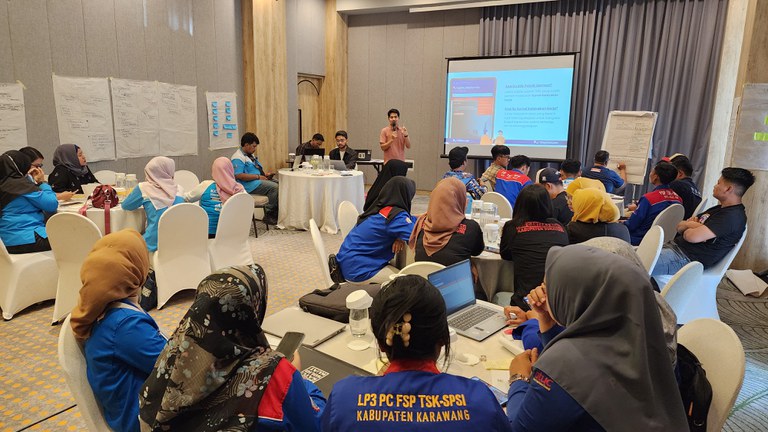
At the end of the second day, participants were introduced to workshop tools for mapping working conditions and formulating advocacy strategies within their respective companies. Each company group selected one urgent issue for advocacy.
Day Three
On the third day, after an ice-breaking session, participants began presenting and discussing the results of their mapping and advocacy strategy formulation for each company. One of the most interesting discussions arose when it was revealed that one company could deduct an attendance bonus of Rp350,000 - Rp400,000 for workers who took menstrual leave. This deduction only applied to menstrual leave and did not affect annual leave, which all workers were entitled to.
The discussion emphasized that this is a form of gender-based violence, with female workers being the victims. Women are denied the same opportunity to receive the attendance bonus simply because they take menstrual leave. Additionally, this policy could discourage women from taking menstrual leave, which could eventually affect their reproductive health.
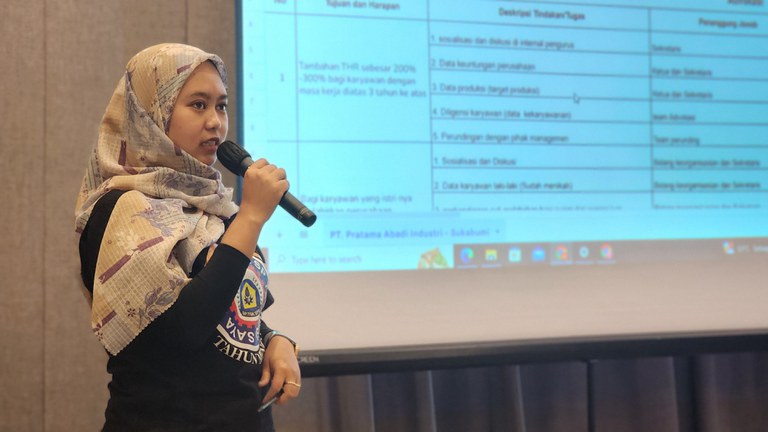
After the workshop session discussion, participants were encouraged to draft a Follow-Up Action Plan (RTL). This RTL includes the dates for advocacy or negotiation actions to take place. The hope is that the TURC team will be able to reconnect with participants to monitor the progress of their advocacy efforts.
The third day concluded with the completion of a post-test and feedback forms as input for the Makin Terang team. The Data-Based Advocacy Workshop West Java 2024 officially ended with a group photo.
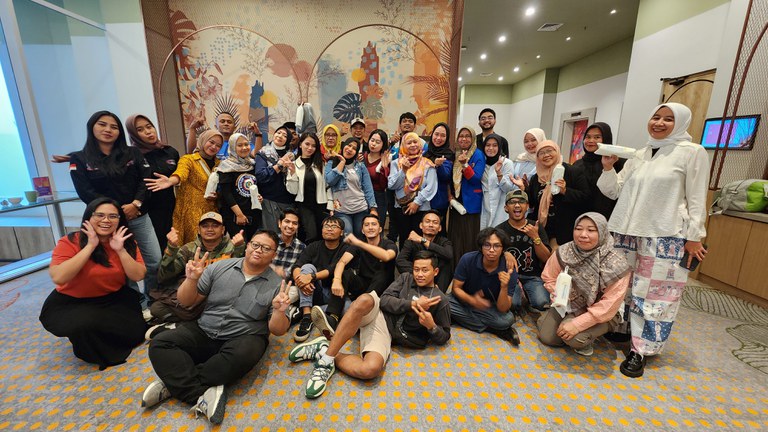
Read also:
